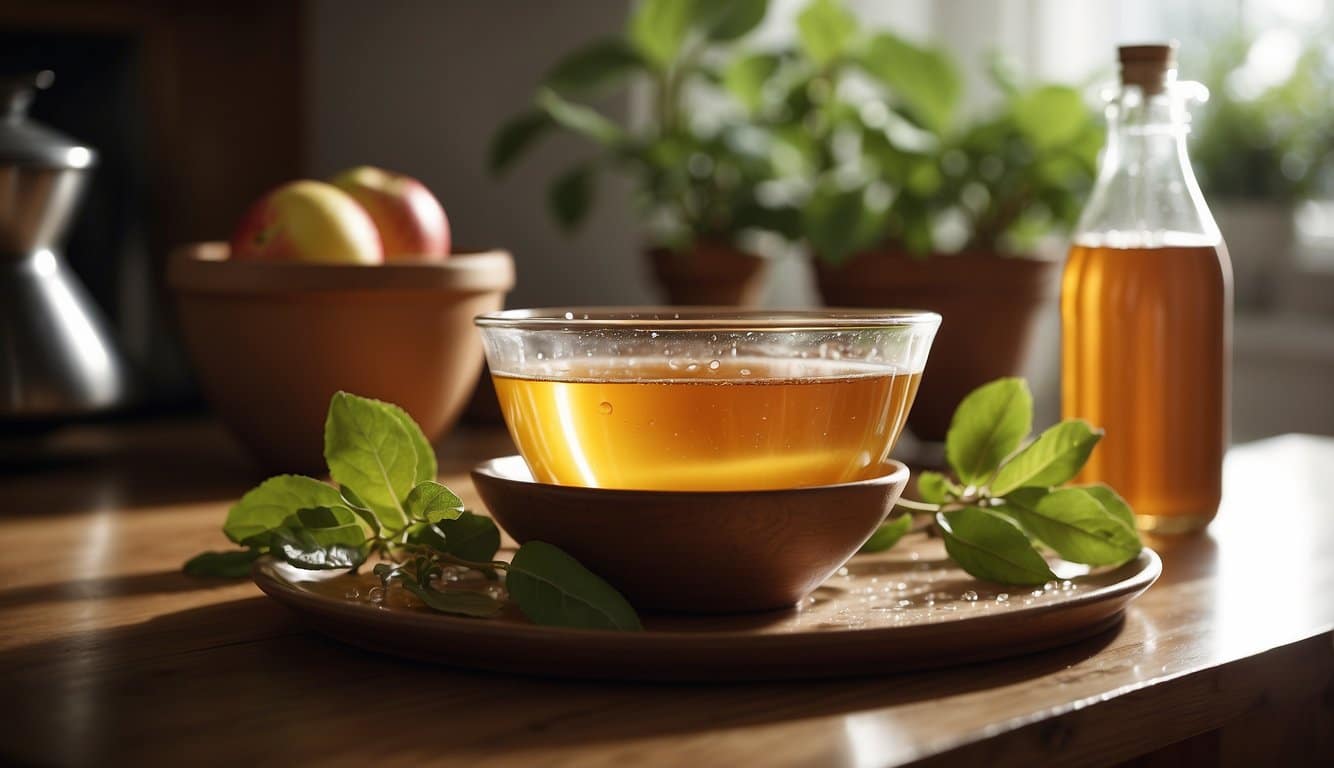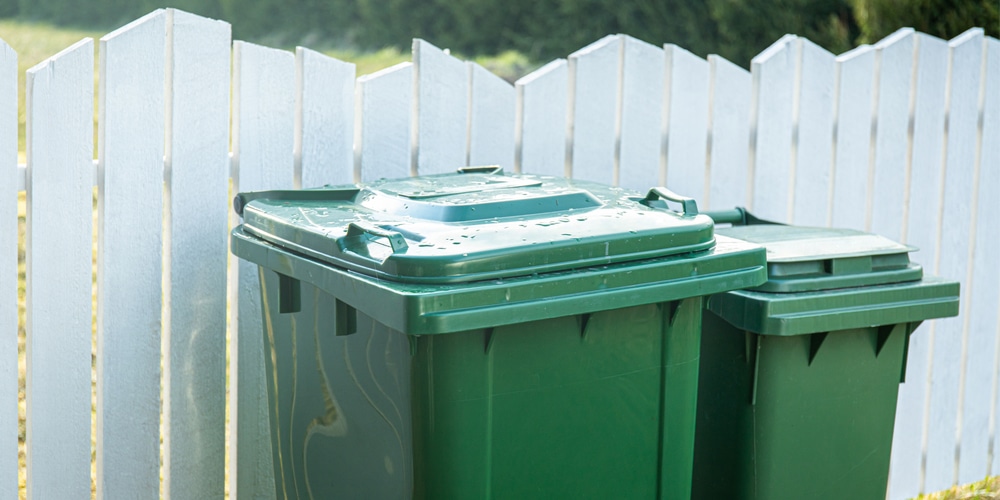Gnats: 101
Before you start your quest against these pesky intruders, it’s crucial to know the signs and types of gnats you’re dealing with. Clarity here is the first step toward reclaiming your space!
Signs of Gnats
- Swarms around Plants: Gnats are often seen in hovering groups near houseplants or other moist soil areas where they lay their eggs.
- Buzzing around Fruit or Trash Bins: These critters are attracted to the scent of ripe fruit and decaying organic matter, making your trash bin a potential gnat hotspot.
Types of Gnats
- Fungus Gnats: These gnats are dark with long legs and are commonly found around overwatered plants where fungi can thrive.
- Fruit Flies: Easily recognizable by their red eyes, fruit flies prefer sugary substances and fermenting fruits. They are not true gnats but often lumped together due to similar behaviors.
- Drain Flies: Sometimes mistaken for small moths, these gnats have a fuzzy appearance and are typically found near drains, as their name suggests.
Natural Remedies for Gnat Control
Wave goodbye to those pesky gnats with some clever, natural tactics. From concoctions you can whip up at home to tiny predatory helpers, you’ve got several environmentally friendly options to keep your space gnat-free.
Vinegar Traps
- Sweet and Simple: Mix one part apple cider vinegar with one drop of dish soap; the vinegar lures them in, and the soap traps them.
- Set-Up: Pour the mixture into a shallow dish and place it where gnats are seen most often. Here’s how you can create your own vinegar trap.
Essential Oil Solutions
- Eucalyptus, Peppermint, or Citronella: Dab a few drops of any of these oils onto cotton balls.
- Strategic Placement: Position the cotton balls in gnat-prone areas or mix the oils with water for a spray solution.
Biological Combatants
- Meet Your New Friends: Bacillus thuringiensis var. israelensis (BTI) is a bacteria that’s deadly to gnat larvae but safe for plants and pets.
- Application Magic: Add BTI to the soil of your houseplants to eliminate larvae.
Picking the right method depends on whether you’re dealing with adult gnats buzzing about or tackling the next generation before they take flight.
Chemical Solutions for Gnat Problems
When gnats invade your space, sometimes the only course of action is to bring in the heavy hitters. Chemical solutions can offer swift and effective relief from these pesky intruders.
Insecticidal Soap
- Targeted Attack: Insecticidal soap can decimate gnat populations on contact. You’ll find these soaps especially effective against the young larvae, disrupting their development.
- Application Tips: Be sure to thoroughly coat affected areas, as the soap needs to make direct contact with the gnats to be effective. Reapplication might be necessary for ongoing issues.
Gnat Foggers
- Wide Coverage: When it comes to treating large areas, gnat foggers can fumigate entire rooms, reaching the nooks and crannies that gnats might call home.
- Safety First: Always:
- Follow the instructions on the label.
- Vacate the area during treatment.
- Allow for proper ventilation before returning.
Remember, when using chemical solutions to combat gnat problems, protecting yourself is as important as eradicating the pests.
Make Your Home Unattractive to Knats
Taking proactive steps can make your space less appealing to gnats. Focus on these two pivotal tactics: keeping areas dry and managing waste efficiently to create a gnat-free zone.
Moisture Control
- Eliminate standing water: Ensure that you empty out any trays under houseplants and address overwatering issues, as gnats thrive in moist environments.
- Fix leaks promptly: Repair dripping taps or plumbing leaks to avoid water accumulation.
Proper Waste Management
- Seal trash cans: Use lids on garbage bins to prevent gnats from being attracted to the waste’s scent and potential moisture.
- Compost correctly: If you compost, ensure it’s properly aerated and covered to discourage gnat infestations.
Gnat-Free Garden Maintenance Tips
Maintaining a gnat-free garden involves proactive soil management and strategic plant selection. Your green oasis can thrive without the annoyance of these tiny pests if you follow these targeted strategies.
Soil Treatment
- Dry Out Soil: Gnats are attracted to moisture, hence allowing the top layer of soil to dry out before watering can deter their formation. This break in watering disrupts the gnat lifecycle.
- Hydrogen Peroxide Solution: Treating your garden’s soil with a hydrogen peroxide mixture helps eliminate gnat larvae. Mix one part 3% hydrogen peroxide with four parts water and apply it to the affected soil.
Plant Choices
- Repellent Plants: Adding plants like marigolds, mint, and chives to your garden can naturally repel gnats due to their scent.
- Healthy Plants: Weak or dying plants attract gnats. Ensure you’re selecting robust, healthy plants and remove any that are declining to keep gnats at bay.
Frequently Asked Questions
Tackling a gnat problem can leave you buzzing with questions. Let’s get straight to the answers that will keep these pesky invaders at bay.
What’s the best natural method to keep gnats away from indoor plants?
- Mix one part hydrogen peroxide with four parts water and water your indoor plants. This solution helps eliminate gnat larvae in the soil.
- Sand or gravel top dressing on your plant soil can deter gnats, as they cannot reach the moist dirt they love.
What are the top techniques for rapidly clearing out gnats inside your home?
- Create DIY vinegar traps to capture and drown gnats.
- Regularly empty and clean trash bins to remove gnat attractants.
- Pour diluted bleach down the drains if you suspect gnats breeding there, ensuring you don’t harm your plumbing.
- Leave out a mixture of apple cider vinegar with a few drops of dish soap to trap gnats.
What are the proven strategies for repelling gnats outdoors?
- Introduce nematodes to your garden soil, as they feed on gnat larvae without harming plants.
- Keep drains clean and dry to prevent gnats from breeding.
What essential oils or scents have a reputation for deterring gnats effectively?
- Apply vanilla essential oil mixed with water as a natural gnat repellent.
- Citronella, peppermint, and eucalyptus oils are known for their gnat-repelling properties.
Why are fruit flies and gnats attracted to my space and how can I send them packing?
- Gnats and fruit flies are drawn to moisture and organic material.
- Ensure to keep your fruit in the fridge and surfaces clean.
- Hang sticky fly traps near gnat-prone areas to catch them quickly.
Last update on 2025-04-25 / Affiliate links / Images from Amazon Product Advertising API




